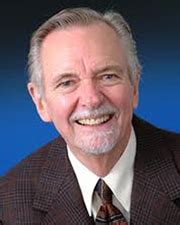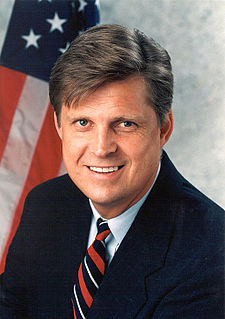A Quote by William Watson Purkey
A poignant paradox is that sometimes the very desire to be a good mother or father will lead the parent to mistake duty for love.
Related Quotes
Parenting can be established as a time-share job, but mothers are less good "switching off" their parent identity and turning to something else. Many women envy the father's ability to set clear boundaries between home and work, between being an on-duty and an off-duty parent.... Women work very hard to maintain a closeness to their child. Father's value intimacy with a child, but often do not know how to work to maintain it.
....love and desire enjoy a symbiotic relationship, meaning that one cannot exist without the other. Desire is an enemy to contentment; desire is illness, a feverish brain. Who can be considered healthy who wants? The very word want suggests a lack, an impoverishment, and that is what desire is: an impoverishment of the brain, a flaw, a mistake.
My noble father, I do perceive here a divided duty. To you I am bound for life and education. My life and education both do learn me How to respect you. You are the lord of my duty, I am hitherto your daughter. But here’s my husband, And so much duty as my mother showed To you, preferring you before her father, So much I challenge that I may profess Due to the Moor my lord.
Drama is based on the Mistake. I think someone is my friend when he really is my enemy, that I am free to marry a woman when in fact she is my mother, that this person is a chambermaid when it is a young nobleman in disguise, that this well-dressed young man is rich when he is really a penniless adventurer, or that if I do this such and such a result will follow when in fact it results in something very different. All good drama has two movements, first the making of the mistake, then the discovery that it was a mistake.
You will notice that what we are aiming at when we fall in love is a very strange paradox. The paradox consists of the fact that, when we fall in love, we are seeking to re-find all or some of the people to whom we were attached as children. On the other hand, we ask our beloved to correct all of the wrongs that these early parents or siblings inflicted upon us. So that love contains in it the contradiction: The attempt to return to the past and the attempt to undo the past.
The protection of a ten-year-old girl from her father's advances is a necessary condition of social order, but the protection of the father from temptation is a necessary condition of his continued social adjustment. The protections that are built up in the child against desire for the parent become the essential counterpart to the attitudes in the parent that protect the child.
Father was a good driver and enjoyed driving, but the sight of a female in charge of a vehicle was sometimes too much for him. If a car came to close or made the smallest mistake with the rules of the road he shouted, "blasted woman driver", to which my mother was often able to say, with truth, "Funny thing, she's dressed as a man."
A true and safe leader is likely to be one who has no desire to lead, but is forced into a position by the inward pressure of the Holy Spirit and the press of [circumstances]... The man who is ambitious to lead is disqualified as a leader. The true leader will have no desire to lord it over God's heritage, but will be humble, gentle, self-sacrificing and altogether ready to follow when the Spirit chooses another to lead.






































